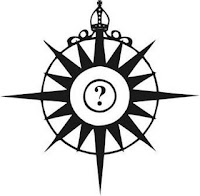 Never let it be said that the well reasoned, clearly articulated, non-polemic arguments of those from the other side of the political/theological aisle are not welcome here at "An Inch At A Time." A recent piece that falls in that category is Matt Kennedy's "A Hard Truth" over at "Stand Firm."
Never let it be said that the well reasoned, clearly articulated, non-polemic arguments of those from the other side of the political/theological aisle are not welcome here at "An Inch At A Time." A recent piece that falls in that category is Matt Kennedy's "A Hard Truth" over at "Stand Firm." See what you think:
+++++
A HARD TRUTH
If we were to take a straw poll of the primates of the Anglican Communion on the question of human sexuality, we would, no doubt, find that somewhat more than 20 agree with Lambeth Resolution 1.10.
Were we, however, to ask which primates would be prepared to stand against or, if need be, apart from Canterbury if push came to shove, the number would be reduced to somewhere near 6 or, if we want to be optimistic, 8.
The fact is that while the vast majority of the Anglican primates hold fast to the orthodox position on human sexuality, only a small minority are willing to do much about it apart from issuing statements or voting “yes” on various orthodox resolutions.
It seems, unfortunately for us, that Canterbury knows this too.
He tested the strength of the Global South coalition in Tanzania and found, in the end, that only a small number of primates were prepared to walk if need be. The bold intransigence of these few courageous primates saved the day in Dar. But the damage was done. The strength of the orthodox primates and the orthodox position within the primates meeting once lay in the potential loss of up to 20 provinces.
.
At Dar, the Archbishop of Canterbury put this potential to the test. He lost his gambit to push through the Sub-Group Report, but he gained a much greater strategic victory: knowledge. Now he knows the real rather than the supposed strength of the orthodox primates. And this knowledge has added a certain measure of steel to his spine.
Why carry forward with the process articulated at Dar? Why heed calls from communion conservatives to appoint a provincial council? Why call a primates meeting after September 30th? Politically speaking, there is no reason to do any of these things and every reason not to do them.
Knowledge of the real political weakness of the orthodox coalition is why we’ve seen, since Tanzania, such a noticeable and aggressive shift in Canterbury’s public position and posture beginning with his issuance of Lambeth Conference invitations.
The worst case scenario for Archbishop Rowan Williams, supposing he refuses to act in accordance with the Tanzania Communique’s Pastoral Scheme and/or refuses to discipline the Episcopal Church, would be the loss of some populous but politically isolated provinces in the Global South and the loss of several primates--primates who, frankly, threaten the power and position of the see of Canterbury and that of the Church of England.
Canterbury has nothing to lose. This is a hard truth.
I’ve written about it before. I do so again because I think it is something with which we must come to terms if we are to think clearly about the Network, Common Cause, the upcoming House of Bishops meeting, Lambeth, and the Communion as a whole. And the most profound question is this: Is Canterbury essential to Anglicanism?
My own answer, as you might have guessed, is “no.” What is yours?
The way various parties, far more powerful and influential, answer that fundamental question will determine the ultimate shape of the Communion.
+++++
I happen to think Canterbury is essential to the Anglican Communion as we know it. I'd quibble with the term "Anglicanism" as it seems to me that more and more we are seeing there are actually a plurality of "Anglicanisms" operating within the bounds of our life in this communion and the root of the problem du jour seems to be who gets to decide what is essential and what is not.
Which brings me to Lambeth. Let's not lose sight of the history of Lambeth Conferences -- that "won't ya'll come hang out at Lambeth Palace with me" shindig the Archibishop of Canterbury throws every ten years. It's as if those invited to a party at your home start to think they get to dictate the guest list, begin to tell you what to serve or not to serve and then -- when you protest "excuse me, this is MY party!" -- decide you're not "essential."
My question is: How do you get away calling the Archbishop of Canterbury an Anglican non-essential and US the revisionists?
1 comment:
No-where in the creeds, the ordinal or the 39 articles, nor anywhere else in the BCP as far as I can tell is there any mention of the Abp Canterbury, so that would seem to suggest that we can happily live by the Bible and the BCP without the ABC and still be defined as Anglican. Therefore it also stands to reason that those who fudge on some statements in the creeds, and only treat the 39 Articles as purely historical documents are clearly revisionists by definition.
Post a Comment